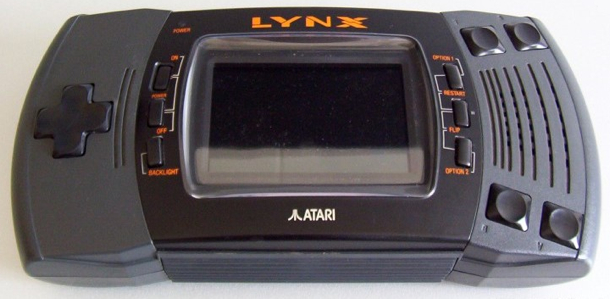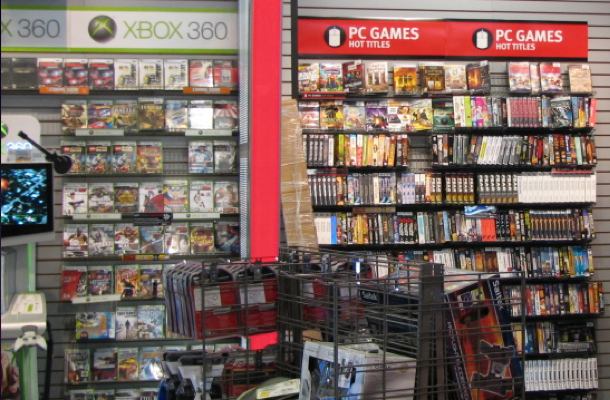What do Rovio, Firemint, Gameloft, PopCap Games, Backflip Studios, and Spacetime Studios have in common? They are game developers that have taken the concept of a modern-day video game and rendered it onto a screen no larger than the palm of our hands. Oh, and they just so happen to be making a killing while doing it.
Console gaming is “dying,” according to Peter Vesterbacka, who is in charge of business development for Rovio, maker of the wildly popular Angry Birds games. The time when $60 games stocked store shelves and Black Ops stole our youth’s REM sleep cycles will eventually come to an end. The times are changing, and those who fail to adapt will perish.

Who is to blame for such a thing?
Mobile Gaming Grew
Remember Nintendo’s original GameBoy? How about Atari’s Lynx and Sega’s Game Gear? These were platforms that transformed how consumers perceived gaming. No longer were games restrained to chunky CRT televisions — game systems were now within the grasp of hands everywhere. The handheld was here to stay.
These handheld game systems became more powerful every year, with new systems constantly entering the marketplace. New competitors like Sony, with PlayStation Portable, and Nokia, with N-Gage, entered the fray, too. But it became evident that only a few would last. Before long, only two remained: Sony and Nintendo. And this is how the story has been told for years.

While both Japanese companies battled it out on both traditional and mobile gaming platforms, new competition failed to materialize. Microsoft wasn’t playing the mobile gaming card — even though I (and maybe others) would argue that it was a mistake not to. And no one else was really in a position to enter mobile gaming and pose any serious challenge.
It wasn’t until a duo of touch-based products entered the market that things got interesting. These products, by one American company, were about to revolutionize the gaming industry, and no one at the time could have been the wiser.
iOS Changed the Game
Enter the iPhone and iPod Touch. We all know where these products stand in today’s marketplace, but their affects on the game industry was not immediately felt nor understood.
In the beginning, a few game developers entertained the idea of developing for iOS. No big names jumped out at us, but the indie developers who were developing for Apple’s platform were likely on the receiving end of many open wallets and eager gamers wanting to enjoy games on their much-loved Apple devices. Now, after iOS, indie game developers have a way to get rich without the millions of dollars it requires to create blockbuster game titles on more traditional platforms.

Success stories like that of Rovio with Angry Birds, which recently surpassed 100 million downloads, are now becoming the norm. It has spurred on a new type of gamer, called the “casual gamer.” Rovio, however, argues that labeling mobile gamers “casual gamers” is wrong; they can become just as engaged in Angry Birds as they could Black Ops, Rovio’s Vesterbacka argues. Regardless, these gamers are willing to pay to enjoy games on their mobile devices, and that means that the Nintendo DS and the Sony PSP are no longer necessary to enjoy gaming on the go.
But as impressive as all this sounds, it was never apparent that it would severely affect the traditional console makers and game developers. After all, the graphics, controls, and capabilities of these mobile smart phones are nothing compared to the potential of Xbox 360, PS3, and Wii. Even the PSP and DS have years of support from game developers and capable hardware to boot.
But Apple is changing everything, and many who are in the business of selling games to gamers on consoles and dedicated mobile gaming platforms are struggling because of it.
Revealing Trouble
For the first time in the history of the industry, there were declines across the boards. Game sales were slowing. Console sales were dropping. Overall interest was slowly waning. The impossible became reality — the game industry was proven not to be invincible.
For many, there was much difficulty in understanding why the game industry was struggling. I, on the other hand, never saw any difficulty in understand it at all.

For one, game prices are far too high. Buy a few games a year and your investment just became incredibly expensive, not to mention the prices of the hardware and accessories. Why pay $60 for a single console game that you can only play at home when you could pay $3 for a mobile game and potentially enjoy just as much? And when you think about it, with economic times not being as great as they once were, everyone is out to find more value for their hard-earned cash — that $60 you spent on a single console game could go quite far in the App Store or Android Marketplace.
Another reason is that people are on the move. The concept of a desktop PC is already being threatened, so why should the idea of a game console be any different? People have their smart phones with them at all times, so why not give these consumers access to games at all times? Of course, console gaming has its place right beside the high-definition television; there is no doubt that there will always be some form of video game entertainment accessible to couch potatoes. But we might be approaching a day when the televisions themselves are the game consoles. Google TV? Apple TV? Platforms like these are the future of gaming.
Finally, social gaming has become more important than ever before. Facebook receives most of the credit for this new genre becoming a hit, but the rise of mobile platforms is sure to exploit it to the fullest extent possible. Getting gamers hooked, having them interact with other people, and then encouraging them to play throughout the day with the device they have with them at all times — their smart phone — is a winning formula for the future of gaming.
These trends have become so apparent that some of the game industry’s titans have embraced this movement. EA, in particular, has made significant attempts to move some of their most profitable properties to the platforms like iOS and Android. Only time will tell if it will pay off or if their roots in traditional gaming platforms will render them incapable of making the transition.
Can Apple Become #1?
So, can Apple actually take over the game industry? Some might argue that it is already happening; however, I believe there are a few more steps Apple should take to ensure that the process is as efficient as possible.
- iOS fragmentation needs to end — if you purchase a game for iPhone, it should work for iPad and for the Mac App Store.
- Apple should (if it doesn’t already) take advice from game developers and publishers to create devices that appeal even more to gamers.
- Apple’s Game Center needs to support newer and older devices, and it needs a larger collection of games and adoption from more game developers/publishers.
- Apple could consider creating a game controller for their devices (Apple is good at creating accessories, after all), thus appealing to those who desire a physical controller (but this idea is a long shot).
If Apple does the aforementioned and continues its domination in the mobile arena, the future of gaming on iOS will continue to shine bright. If the game industry adapts, it, too, can thrive along with the likes of iOS and Apple. But if it doesn’t, they better be prepared for more pain — everyone should know by now that, of all the companies out there, Apple can (and most likely will) change the game, and Apple is usually the one that ends up on top.
